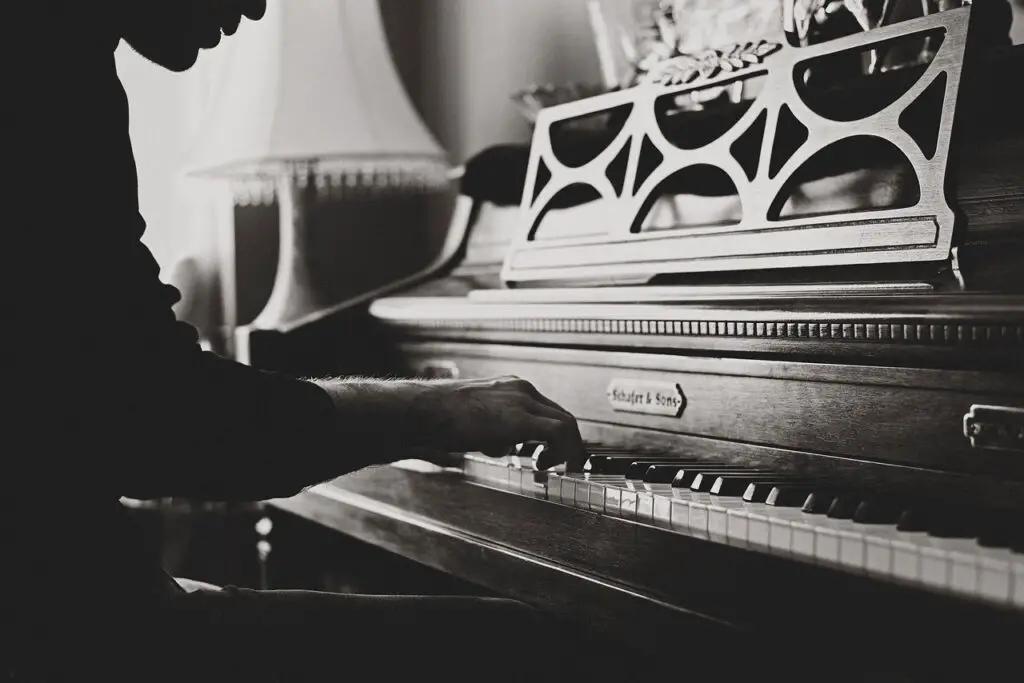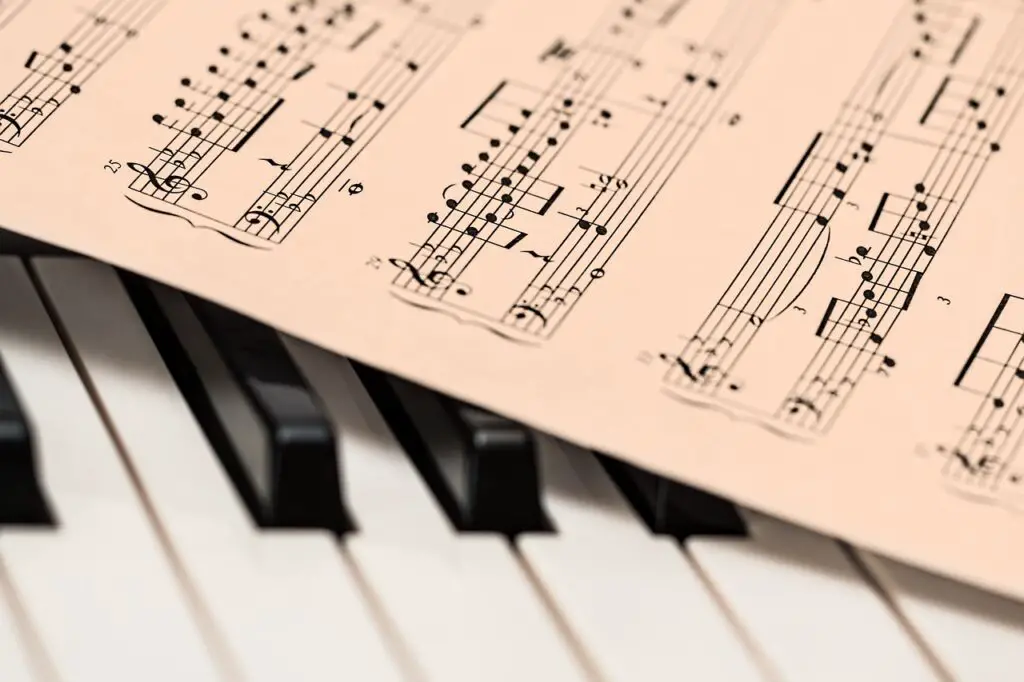Are you planning on enrolling in a piano class?
We hate to burst your bubble, but becoming a master pianist isn’t a feat you can accomplish overnight. It takes a great deal of practice and patience. In fact, the piano ranks among the hardest musical instruments to learn, play, and master.
However, with constant practice, you can ultimately join the league of legendary pianists like Martha Argerich and Helene Grimaud.

One way to become adept at playing the piano is to debunk some common myths associated with learning this musical instrument. Wondering what those misconceptions are? Well, you’re in luck.
We’ve researched the four most pervasive myths about learning the piano. Read on and be inspired!
1. Some People Are Born Pianists
You’ve probably heard it said a million times that musicians are born, not made. Many who subscribe to this school of thought believe that piano playing skills are innate and not acquired. Nothing can be further from the truth.
As with other musical instruments, anyone can learn to play the piano. Becoming a seasoned pianist primarily requires a time commitment and the willingness to learn.
It doesn’t matter whether you were born to talented piano composers and were exposed to this musical instrument right from the cradle. Learning piano will still require you to follow your curve.
It’s essential to admit that there are millions of self-taught piano players. However, this doesn’t discount the significance of patience and practice as the staple for becoming a master pianist.
The key takeaway here is that playing the piano isn’t a gift endowed at birth. Instead, it’s a skill that must be constantly learned and practiced.
The first step would entail finding a high-quality piano and enrolling in a piano class. You’ll acquire the finest piano-playing skills on a long enough timeline.

2. You Have To Start Early
Many of the world’s renowned musicians and composers attribute their success largely to their ability to start early. Accomplished singer-songwriter Alicia Keys began playing the piano at the tender age of seven years. Fellow musician and actor John Legend was first exposed to the instrument at four.
It’s undeniably true that early exposure to the piano can boost your chances of mastering this musical instrument. That’s especially true considering that little children are particularly receptive to the piano and music.
However, it doesn’t necessarily mean you must start learning as a kid. When it comes to mastering the piano, age is never a barrier.
In fact, as an adult, numerous factors could work in your favor as an aspiring pianist. These include better intelligence, more retentive memory, heightened levels of discipline, a greater sense of patience, and a deeper appreciation for art.
Time commitment is perhaps the only challenge to learning to play the piano as an adult. Still, you can easily navigate it, provided you have enough enthusiasm and motivation to learn.
3. Learning the Piano Is Only For Aspiring Musicians
This has to be the one piano misconception that almost everyone is guilty of.
We tend to view anyone who walks into a piano class as some sort of a musician wannabe. You may be surprised to discover that your college mate who never misses their piano lessons is actually an engineering or medicine student.
Make no mistake – being a seasoned pianist can easily land you a spot in an eminent music band. However, there are multiple benefits of learning the piano besides viewing it as a career path.
Playing the piano may provide certain cognitive benefits. Some studies have found that pianists exhibit better brain processing and memory retention.
Learning to play the piano also makes you super sensitive to sounds. It particularly improves your sensitivity to musical melodies. You’ll be able to recognize your favorite classic hit almost instantly when it comes on the radio.

Playing the piano may also be a stress reliever. Simply pressing on the keys can help banish racing thoughts. This might subsequently bolster your creativity and self-confidence.
4. Longer Practice Sessions Are Ideal
Your curiosity to master the piano might have you spending up to eight hours hooked to the musical instrument. That’s perfectly understandable, considering moving from a beginner to a professional may take several months.
However, longer training sessions aren’t always practical. Spending hours mastering the notes and strumming the chords can quickly cause burnout. The ensuing fatigue may interfere with your ability to absorb and retain new information.
Generally, a typical piano session should last anywhere from 30 minutes to one hour, depending on your experience level. Interestingly, beginners require less training time than intermediates and professionals.
Note that additional factors besides your experience level may determine the length of your piano classes. These include your daytime routine, goal, attention span, and budget.
For instance, prolong your classes to 90 minutes if your routine only allows you to be available for training once a week.
Summary
It’s undeniably true that becoming a seasoned pianist is a process rather than an overnight event. However, debunking the common piano learning myths can significantly improve your chances of mastering this musical instrument.
Ultimately, remember to invest in a high-end piano and enroll in an accredited music school.
